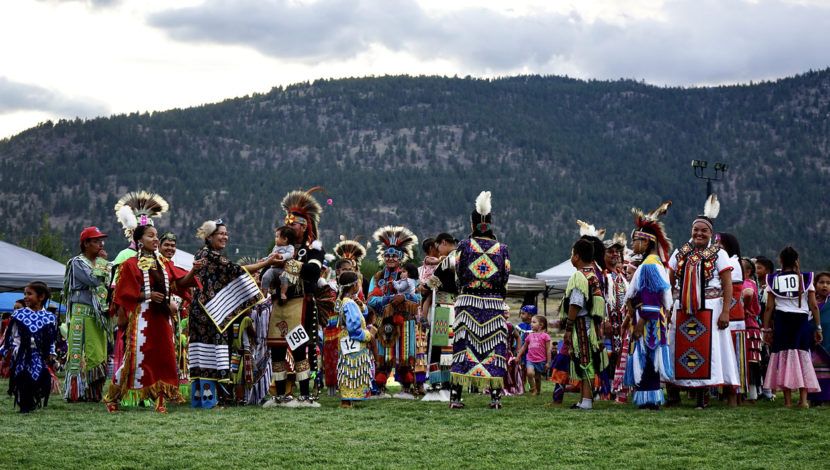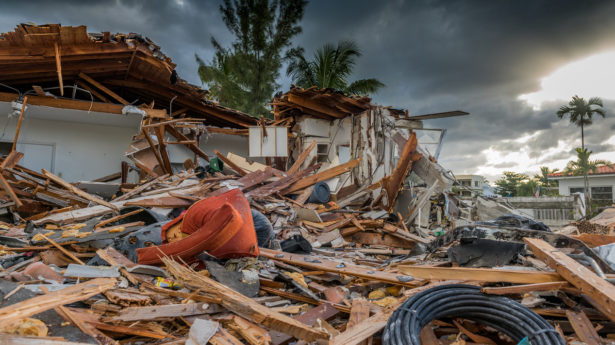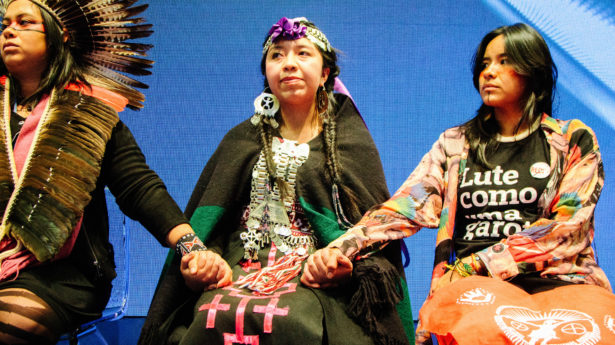The Unitarian Universalist Service Committee advances human rights through grassroots collaborations.
Indigenous Peoples’ Day Calls for Stronger Action to Achieve Climate Justice

By on October 7, 2021
On Monday, October 11, UUSC marks Indigenous Peoples’ Day—a time to honor the courage and strength of Indigenous communities throughout the globe. The day is chosen to overlap with the U.S. federal “Columbus Day” holiday in a conscious effort to re-center Indigenous experiences in the human story—rather than continuing to honor a European colonizer who initiated many of the patterns of exploitation and genocide that continue today in the United States and around the world.
October 11 also comes roughly a week after Indigenous communities across North America held a Day of Remembrance to memorialize the children who suffered in boarding schools in the United States and Canada. These schools were places of physical and mental torture, where Native children were systematically abused, separated from their families and communities, and deprived of their cultural and linguistic rights. In heeding the memory of the children who faced these injustices, we also reflect on the ways we continue to enable the ongoing dispossession of North America’s original inhabitants.
After all, the practices of the U.S. and Canadian boarding schools do not just belong to the past; they are part of a systematic genocide of Indigenous peoples by European colonial powers that still has not ended. A history that UUs also played a part with and are contending with today.
UUSC’s partners Honor the Earth and other Indigenous water protectors are resisting a pipeline project (Enbridge Line 3) that is destroying the ability of the Anishinaabe people to farm wild rice in the Upper Midwest. This rice is a staple crop of the Anishinaabe people and forms the basis of a way of life that has existed for thousands of years. By disrupting it, the Line 3 pipeline violates their inherent sovereignty as Indigenous peoples, as well as specific treaty rights the U.S. government swore to uphold.
Despite his campaign trail promises to respect Indigenous rights and reverse fossil fuel projects like Line 3 that are heating the planet, President Biden refused to act, allowing the pipeline to start pumping tar sands oil through hundreds of life-sustaining waterways. Internationally protected Indigenous rights of free and informed consent are empty if they do not include the right to halt projects precisely like this one.
As Anishinaabe lawyer and water protector Tara Houska recently put it in a powerful podcast interview: “I’m going to keep pushing and hammering on political decision-makers to send a message to the fossil fuel industry that even if a pipeline is 90% completed, that doesn’t mean they get their way, when so many egregious human rights violations and lack of tribal consent is so clear. Respect Indigenous sovereignty. No means no.”
Seizing Indigenous land and livelihoods is not the only way, moreover, that the fossil fuel industry is perpetuating violence and genocide against Indigenous people. Globally, the climate crisis caused by carbon emissions is also forcibly displacing Native people through a host of disruptions to the natural ecosystem. UUSC’s Indigenous partners in Louisiana, including the Pointe-au-Chien Indian Tribe, were already facing record levels of land loss before a devastating storm, Hurricane Ida, slammed into bayou country this summer. Now, they must confront the destruction of their ancestral lands and fight for the resources they deserve with even more urgency.
Hurricane Ida, like other climate-related disasters, could be prevented or mitigated by stronger efforts to halt the pace of global warming. Governments in the Global North—including the United States—also need to compensate communities for the expenses incurred by the need to adapt and relocate, and the irreversible losses and damages caused by the ecological destruction Global North countries have perpetrated. UUSC has made specific demands of the U.S. government to uphold the rights of Indigenous communities harmed by the climate crisis. Today, we repeat these demands, and UUSC supporters can add their voice as individuals to support them as well.
On this Indigenous Peoples’ Day, as every day, we recognize and honor the resilience of Indigenous communities, who have defied centuries of genocide and erasure through heroic acts of survival and flourishing. At the same time, we recognize that resiliency is not the goal. No community should be called upon unjustly—time and again—to draw on these sources of inner strength. Instead, we should live in a world that upholds as a matter of course each person and community’s right to flourish.
Getting closer to that world is not a matter of generosity; it is one of justice and reparation. The United States must contribute its fair share to the costs of climate destruction and stop violating the rights of the country’s Indigenous inhabitants. Add your voice to these efforts today.
***
About UUSC: Guided by the belief that all people have inherent worth and dignity, UUSC advances human rights globally by partnering with affected communities who are confronting injustice, mobilizing to challenge oppressive systems, and inspiring and sustaining spiritually grounded activism for justice. We invite you to join us in this journey toward realizing a better future!
Image Credit: iStock – DanZel

